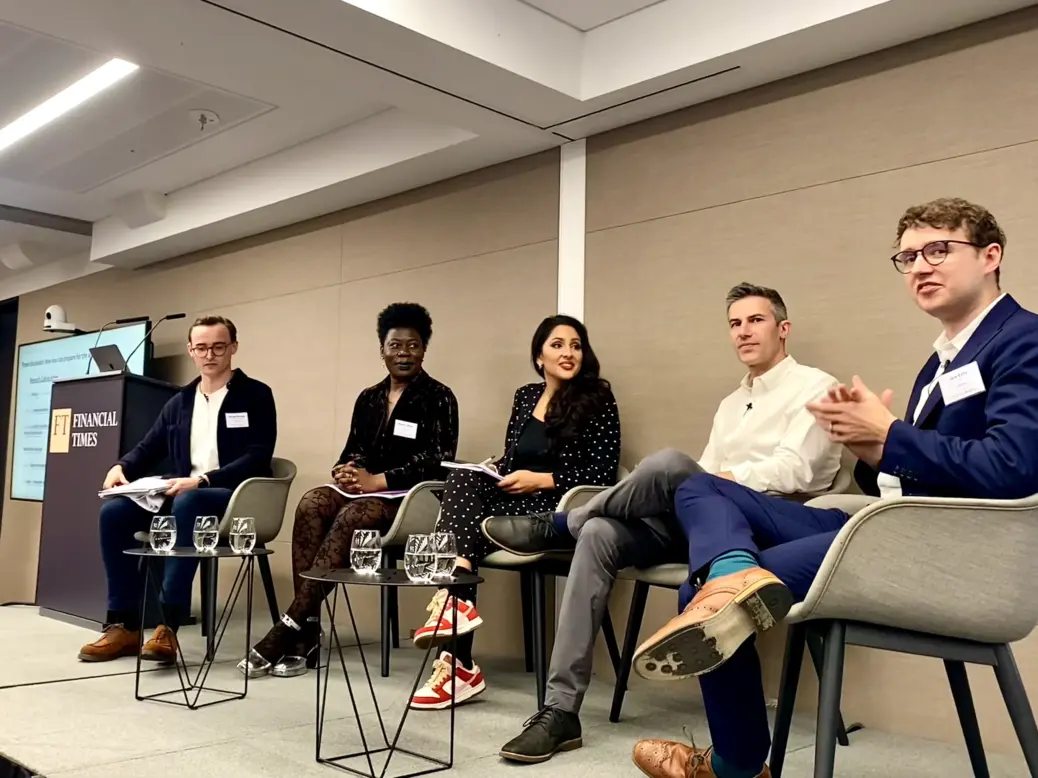
News publishers should not assume young people will gravitate towards them as they get older but should take action now, according to research from FT Strategies.
Researchers interviewed 45 news consumers aged between 18 and 24 in India, Nigeria and the US and identified six approaches publishers can take to attract younger audiences:
- build direct relationships with audiences “by partnering with creators, empowering editorial talent to share their stories and elevating young journalists”
- add personalised and customised experiences with filtering and algorithmic tools
- produce more social-first content
- use accessible language and less formal tones
- create content in new formats
- and make greater use of solutions journalism.
The report’s authors said they restricted the research to a relatively small pool of respondents because, “while large-scale quantitative research is useful for understanding ‘average’ users, it can be difficult to identify the nuanced behaviours and needs of the next generation of news consumers”.
Publishers urged to add youth-oriented formats to their portfolio or risk long-term financial peril
The 2023’s Reuters Institute Digital News Report found that 18 to 24-year-olds are going to social media rather than publisher websites for news, and the FT Strategies report said it was wrong to assume they will change their habits as they get older.
At a panel discussion to launch the report at the London offices of the Financial Times last week, FT Strategies head of insights George Montagu acknowledged that newsrooms cannot throw out traditional approaches which work for established audiences.
But he said: “That’s not to say that you shouldn’t be taking steps now to engage and meet the preferences of younger consumers that are ultimately going to be the people that pay for your use in the future…
“You can think of it more as a portfolio approach than a complete reorientation in terms of your business. I think that’s what’s important, since at the moment there is no balance when it comes to reaching young news consumers – it is purely focused on the core [audience].”
Freelance journalist and PhD researcher Ruona Meyer, who was on the advisory board for the report, said: “It is like being in a restaurant… and the person you are serving says ‘I want my steak burnt to a crisp’, but because you don’t like burnt steak you keep sending them medium rare.
“They keep returning it – and your restaurant is going to shut down. They know better: they know what they want, they own the money…
“My writing started getting more connection with audiences when I decided: you know what, if you want your steak burnt, then there you go.”
[From 2023 Reuters Digital News Report: Gen Z news consumers don’t (and won’t) visit publisher websites]
Young audiences ‘do not just want short-form videos’
The report argued that, “given that the next generations of consumers seek out brands and creators that they feel a connection to, traditional news producers need to find ways to build greater affinity with those audiences” – citing start-ups Morning Brew and Puck, as well as the journalists Sophia Smith Galer and Taylor Lorenz, as successful examples.
[Read more: Sophia Smith Galer on TikTok fame and why she’s ‘flummoxed’ more publishers don’t copy Washington Post’s ‘Dave’]
The researchers said they had identified five “modes” of media consumption common to younger audiences, claiming they use news to variously to:
- filter useful stories from large volumes of information
- substantiate claims
- build up their knowledge
- socialise
- and “sensemake”.
The report suggested that publishers create specialised content to cater to these user needs, for example providing summaries for readers hoping to sift for information, or Q&As with reporters to help clarify the significance of a particular story.
Montagu said audiences “want the information that they do receive to be really dense and include a lot of facts, a lot of analysis, and not the padding that can be associated with filling word counts or filling TV segments. They really want just information-dense content, all the time…
“Far too often in the industry we massively oversimplify what storytelling formats young people want. They do not just want short-form videos. That is part of what they want, but it’s much more complex than that.”
The value of explainer journalism, sub-brands and transparency
The researchers identified the language and tone used by news publishers as something that alienates young audiences.
Meyer said: “If you deliver bad news in a way that is also formal, you are just adding another layer and another reason for people to leave…
“It doesn’t matter what language someone speaks, they deserve news. We need to remove that dogma that says the news gets corrupted once it’s not sounding like you have constipation.”
The report recommended that publishers assume that readers don’t know the background to any given story and that they make greater use of explainer journalism, citing the work of BBC News analysis editor Ros Atkins as a promising example.
Sub-brands that use an alternative voice to the main publication may also work, they suggested – however another advisory board member, TLDR News founder Jack Kelly, added: “You have to be careful, because you can very easily fall into the trope of ‘hey young people, listen to this’ and feel very disingenuous. I think you need to really be careful and thoughtful about where you do these tonal changes.”
Kelly noted that when his primarily Youtube-based, creator-staffed publication gets negative feedback from viewers, it films a follow-up video talking through and responding to criticism.
“I think there is a real appetite for that kind of transparency,” he said, suggesting the approach had won trust from the TLDR News audience. “People don’t want an infallible news source.”
Understanding the audiences of 2030 was produced by FT Strategies in partnership with the Knight Lab at Northwestern University’s Medill School of Journalism.
Email pged@pressgazette.co.uk to point out mistakes, provide story tips or send in a letter for publication on our "Letters Page" blog
